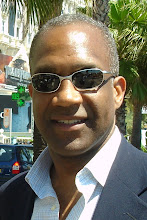 Over last weekend, I finished reading the book, "Losing My Religion: How I Lost My Faith Reporting on Religion in America and Found Unexpected Peace," by William Lobdell. (Click here for a review of this book by The New York Times.)
Over last weekend, I finished reading the book, "Losing My Religion: How I Lost My Faith Reporting on Religion in America and Found Unexpected Peace," by William Lobdell. (Click here for a review of this book by The New York Times.) I was interested in Lobdell's experience on the Religion beat, because I was once a religion reporter for a large daily newspaper, and I shared many of Lobdell's initial ambitions and perspectives on the reporting of religion as news (as opposed to fluffy feature stories where everyone is in Sunday best). I also shared many of Lobdell's disappointments: Clergymen who fleece their sheep, religious institutions that have more in common with Wall Street than with Main Street, and persons who use religion as a cover for hate and violence.
Unlike Lobdell, I didn't lose my faith as a result of my job; I lost my job because, in part, it was destroying my faith.
Now, all of this wasn't clear to me at the time. Back then, all I knew was that the job that I had dreamed about while I was in theological school was becoming more drudge than joy with each passing day. Eventually, my editors and I concluded that we should go our separate ways. The year was 1981, and my experiment had lasted 11 months (less if you consider that I took an unpaid leave for 8 weeks for my Naval Reserve training).
In those months, I interviewed Billy Graham, the late Jerry Falwell, Richard Roberts (son of Oral Roberts and heir of Oral's ministerial empire in Tulsa, Oklahoma), a senior citizen who had founded a white supremacist "church" that he ran from the sunny shores of Broward County, Florida; and the late D. James Kennedy, whose Coral Ridge Presbyterian Church was an easy drive from the Fort Lauderdale bureau where I worked. It was, as you can see, a sampling from the ecclesiastical sea that included flying fish, bottom feeders, and the species in between.
I have never regretted my decision to go to Florida for the newspaper job; nor my decision to leave when, and how, I did. As the saying goes: "When the horse on which you're riding dies, get off." Lobdell's experiences resonated with me and, to my surprise, helped me to understand the value of guarding the environment in which one works and lives.
Lobdell, a devout man on his way to becoming a Roman Catholic, spends progressively larger amounts of time pursuing the story of the decade: The Catholic priest sexual abuse scandal and the cover-up by higher-ups. Little by little, the sins of men undermine Lobdell's faith in God.
As I finished Lobdell's book, the words of Paul, as recorded in his letter to the Christians in Philippi, haunted me: "Finally bretheren, whatever is true, whatever is honorable, whatever is right, whatever is pure, whatever is lovely, whatever is of good repute, if there is any excellence and if anything worthy of praise, let your mind dwell on these things. The things you have learned and received and heard and seen in me, practice these things; and the God of peace shall be with you." (Philippians 4: 8 - 9, NASB)
As a citizen of heaven -- yet, still a sojourner on earth -- our path will take us through many places, and before persons, deceitful, dishonorable, crooked, polluted, ugly, disreputable, and unpraiseworthy. I believe that the Spirit of God will not lead you where the grace of God will not keep you. I also believe that the key to emerging from the cesspool having influenced the cesspool more than the cesspool has influenced you is found in Paul's advice to the Philippian disciples.




No comments:
Post a Comment